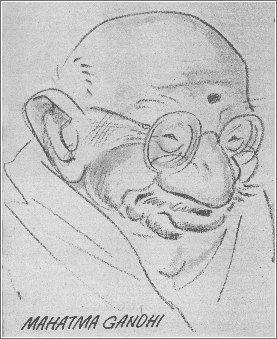Of Homo Organizationum and Consciousness
By Ashok Bhatia (2017)
Successful organizations which boast of high brand equity follow several sustainable practices. One of these is the practice of treating their human assets with the respect and dignity they deserve. While compassion and empathy govern their HR practices, it would be wrong to surmise that they do so by compromising on their business goals. This unique species of organizations, referred to here as Homo Organizationum, is envisaged as the one comprising Functionally Humane Organizations, where an optimal balance is maintained between business results and human relations.
This unique species of organizations, referred to here as Homo Organizationum, is envisaged as the one comprising Functionally Humane Organizations, where an optimal balance is maintained between business results and human relations.
Let me share one such instance from my own career.
High performance vs domestic bliss
A star performer in an IT manufacturing set up had to strike a fine balance between her role as a crucial final quality controller and that of being a home maker. In her absence, high priority shipments could get delayed. At home, she had to take care of an ailing mother-in-law and a kid. Her husband used to work in another set up around 900 kms away and would come visiting once every two months.
On a specific weekend, when an important shipment was to leave the factory late at night, message came that her husband was on his way home. Much to her dismay, a permission to leave the factory at the normal closing time was promptly turned down by her immediate superior.
The grapevine ensured that the incident of refusal of permission percolated upwards to the manufacturing head. The superior was called in without delay and given a dressing down. He, and the head of Quality Assurance, were guided on making alternative arrangements.
Eventually, the woman was delighted to receive a permission to leave the place of work by lunch time itself, adding a few precious hours to her domestic bliss. The shipment also got despatched without any compromise on the immediate business goal.
Several such examples abound. Regrettably, however, these are outnumbered by the kind of instances which involved blatant exploitation of employees. Across organizations, this manifests in so many ways. Inhuman treatment while pursuing an immediate business goal. Depriving the employees their rightful dues. Lower salaries, accompanied by liberal grant of personal loans and advances, thereby keeping the employees perennially indebted to the employer, and the like.
The leaner Davids and the flabbier Goliaths
When I look back at my 35-year exposure to the private sector, one thing stands out. The positive examples were mostly from the larger companies in the organized sector. The negative examples were invariably from the small-scale sector.
Large companies have a better organized way of working. They often carry some flab. Systems take precedence over individuals. On the contrary, the smaller ones tend to be much leaner – though decidedly not fitter – simply because one person gets hired only when three are required!
The Consciousness of Organizations
Members of the species of entities known as Homo Organizationum thrive only when they can add value to their diverse stakeholders. However, to create a brand which is respected by their customers as well as their employees, as also to add value on a sustainable basis, they need to have a working culture which places a higher premium on such values as empathy, compassion, dignity, respect, justice, honesty, openness, transparency and equality.
Their employees then become their brand ambassadors, making it easier for them to attract better talent. This, in turn, makes them more efficient and effective.
All organizations have a consciousness which seeps through all its organs. It manifests itself in myriad ways; specifically, through its culture. It is reflected in the manner in which the seniors conduct themselves. It shows up in the way decisions get taken. Unlike grandiose Vision and Mission statements which adorn their physical walls, it is not easy to articulate culture in words. Nor can it be readily replicated.
Just like a tiger is known by its stripes, an organization is known by the kind of consciousness it lives and operates by. The more humane the same, the higher the probability of sustainable success.
Some crystal gazing
Advances in technology are already re-shaping our organizations. Gone are the control-and-command structures. Hierarchies are getting flatter. Mundane tasks are being taken over by Artificial Intelligence and Robotics. Geeks are twiddling their thumbs, trying to cope up with Machine Learning, Augmented Reality, Virtual Reality, Internet of Things, et al. Besides technology, buyer behaviour is changing. Geopolitics is changing. Workforce attitudes are changing.
Besides technology, buyer behaviour is changing. Geopolitics is changing. Workforce attitudes are changing.
But Homo Organizationum face little risk of becoming extinct. On the contrary, it is quite likely that with the kind of changes in the offing, the need for organizations to be humane would only go up in the future.
Time for HR honchos to re-skill themselves.
(A version of this article was published in the IBA Journal, volume 9, issue 2)
Ashok Kumar Bhatia is an occasional author, a speaker, a regular blogger and content creator on such topics as Management, P G Wodehouse, Bollywood and life in general. Based on his 35 years+ experience in the corporate world, he is acutely aware and conscious of the need for high values and ethics in business. Almost all his articles and books have an underlying current highlighting this very theme. In him, one finds a fierce critic of any kind of compromises on this front. He believes that business ships which are built on a keel of sound values end up not only having a better brand equity but also yield better returns to their stakeholders. When businesses are broad minded and give back to the society at large, they serve a higher purpose. His blog posts can be accessed at ashokbhatia.wordpress.com.




Comments
Post a Comment